Cats can be the perfect companion for someone looking for low-maintenance companionship, especially for senior citizens. Even so, there are still breeds that fit their lifestyle better than others. It’s no secret, some cats can be a nuisance. It makes sense to do research to find the best cat breed for seniors, so they can have the affection and company they need.
Some may find it silly for a senior citizen, or anyone, to count on a cat for friendship. But older adults have only four friends they can count on, a new survey shows. If you are over the age of 55, odds are you only have four reliable buddies. That’s the sobering finding from a poll of 2,000 Americans in this age group that sheds light on loneliness and social inactivity among older adults. In fact, the survey finds that one in five feels lonely more than half the week (19%). Three in four admit that their social circle has shrunk as they’ve gotten older (77%), with nearly half of the respondents (48%) sharing that they’ve stopped being friends with at least three people in the last two years alone. However, the survey, conducted by OnePoll and commissioned by Life Time, also finds that 83 percent feel it’s never too late in life to create fulfilling relationships, even if that is a cat!
Here’s the thing: a price tag comes with owning a cat — but many feline families say their pet is “priceless” no matter what. The average American spends $25,304 on their friendly fur ball during their life, according to a poll of 2,000 cat owners. For two in three, it’s led to the belief that their cats are truly the queens and kings of their home. Based on an average 15-year lifespan for cats, the costs really stack up. Over that lifetime, people spend $764 just replacing or repairing scratched-up furniture. Per visit, vet appointments cost $111 out of pocket on average — twice to four times as much as the copay from a human doctor visit. These costs don’t even include food or toys, which can run up an average of $109 per month and $108 per year, respectively. So, plan accordingly!
Looking to spend your golden years alongside a sweet, snuggly kitty? StudyFinds turned to 10 expert websites to find five of the best cat breeds for seniors. If you think we missed a cat that is puuuurfect, please let us know in the comments below!

The List: Best Cat Breeds for Seniors, According to Feline Experts
1. British Shorthair
The British Shorthair is a great low-maintenance choice for a cat breed for seniors. They don’t need grooming all that often. Mishi Pets elaborates, “British Shorthairs only need grooming every now and again to sort out any loose hairs. As well as being simple to groom, these are really calm and good-natured cats. They’re mellow and can be quite independent when they need to be. This doesn’t mean that they avoid people though, British Shorthairs can be a friendly and comforting presence.”
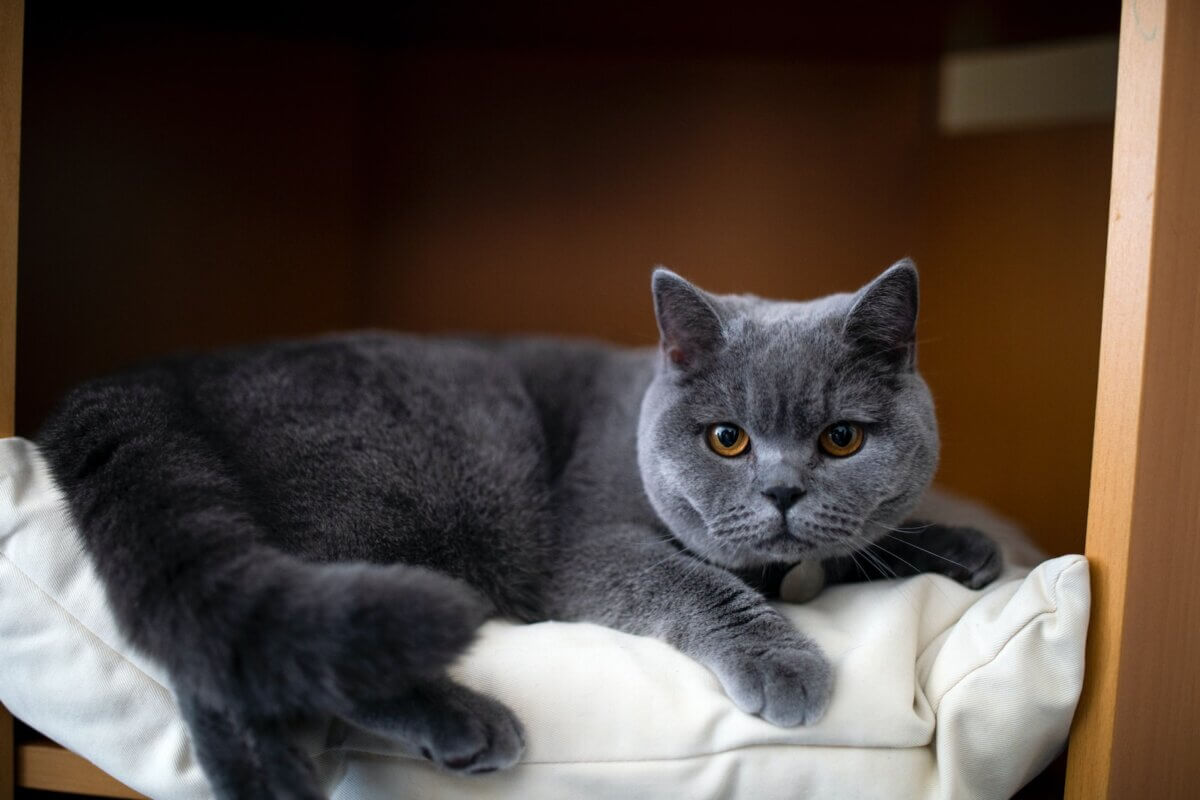
British Shorthairs have higher energy when they’re a kitten, rather than as an adult. They do, however, calm down pretty quickly. “British Shorthairs are good-natured with a calm disposition and a round head. It’s dignified and not as active as other breeds, making it perfect for older adults, and it doesn’t like it when you carry it,” informs Excited Cats.
The British Shorthair is a purebred version of the British domestic cat. “Slightly smaller than their American cousins, British Shorthair cats are also friendly and affectionate. They may not be lap cats, TICA notes, but they like being with their owners,” says Newsweek.
2. Persian Cat
While the Persian cat can get along with people, cats, and dogs, it’s not ideal for households with rambunctious young children. “Persian Cats can be prone to health problems and may require more veterinary care as they age. Look for a cat with a slightly longer nose to reduce breathing and other difficulties,” says Hepper.
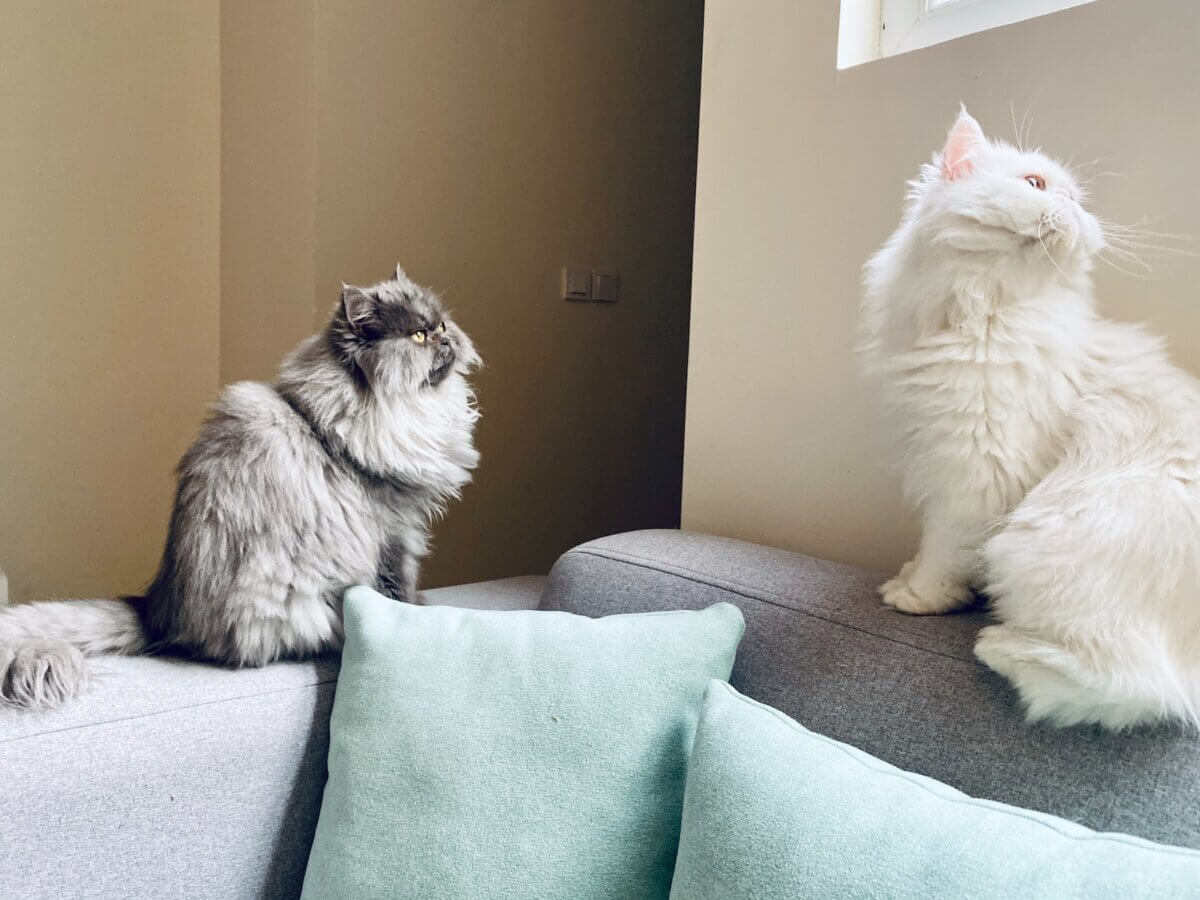
With a longevity of 10 to 17 years, the Persian is another one of the best cat breeds for seniors. “Persian cats, are known for their beautiful coat and calm nature. Look no further if you are looking for a cat that will lounge around with you all day. However, because of their long coats, Persian cats require frequent grooming and maintenance,” states Medigap.
Persian cats are well known for being some of the quietest and most friendly breeds. These calm felines make great pets for older people. “Persian cats are another breed that forms close bonds with their owners. They’re gentle and loving, and they make great lap cats. They do require more grooming than some other breeds, however; their long fur needs to be brushed daily to avoid mats and tangles. If you’re not up for that kind of commitment, a Persian might not be the right fit,” informs Sparrow Living.
3. Ragdoll Cat
The Ragdoll is a good choice for seniors because of its laid-back personality. “Known for being friendly, the Ragdoll typically gets along with other cats, dogs, new people, and children, which is perfect for grandparents who babysit the grandkids on occasion. It has a semi-long coat of silky hair that requires daily brushing to avoid knotting, but is otherwise low maintenance,” informs Hepper.
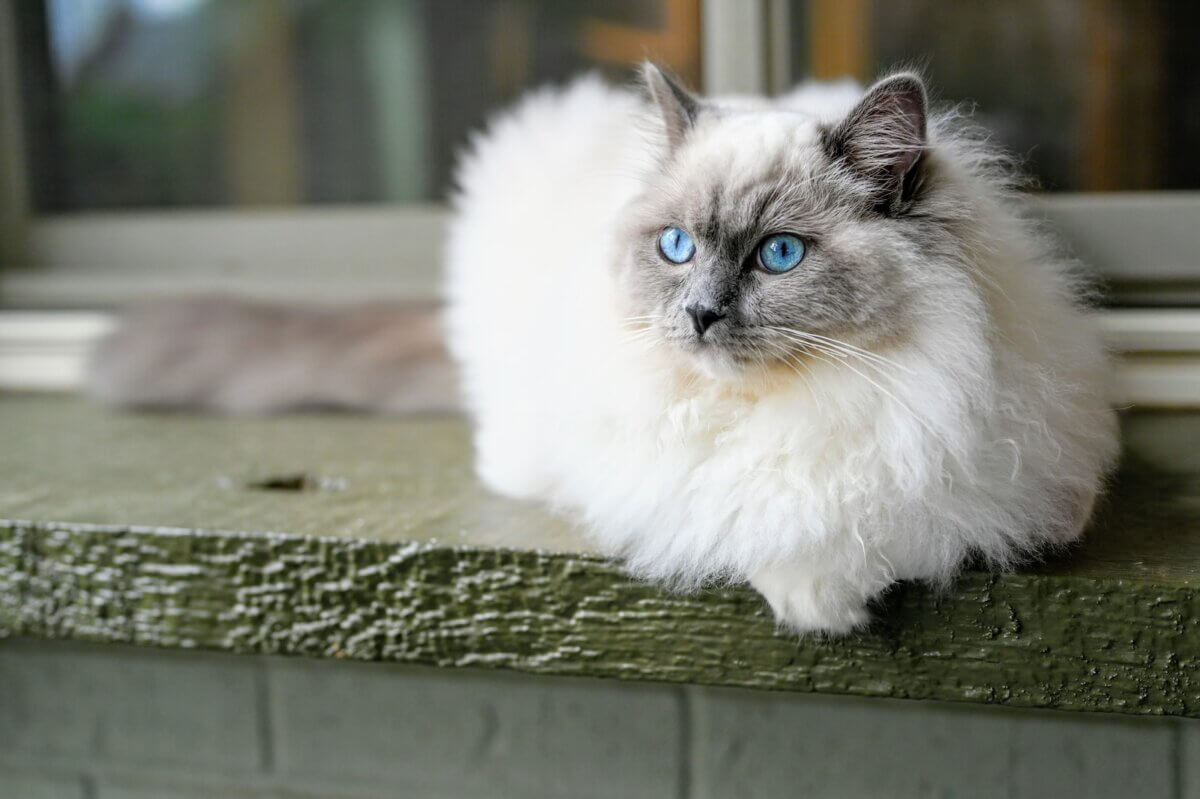
Keep in mind that Ragdoll cats are on the larger side and may require more space and be difficult to carry for some seniors. But if you are looking for a cat to care for and maintain frequently, Medigap says to, “take a closer look at the Ragdoll breed. These cats are long-haired and require frequent grooming. Ragdolls are laid-back and loving and make great companions.”
While not all Ragdolls are perfect for everybody, they are a great starting point when you’re looking to adopt a cat. “You’ll find these cats are friendly, affectionate, and so great for keeping you company without needing an awful lot of exercise or playtime,” says Mishi Pets.
4. Birman Cat
Birman cats have semi-long hair. They only need a medium amount of activity to stay happy and healthy. “They’re a little playful, but not so much that they would wear out an older person. This balance makes them great for someone older who wants an active cat, but one at a manageable level!” states Mishi Pets.
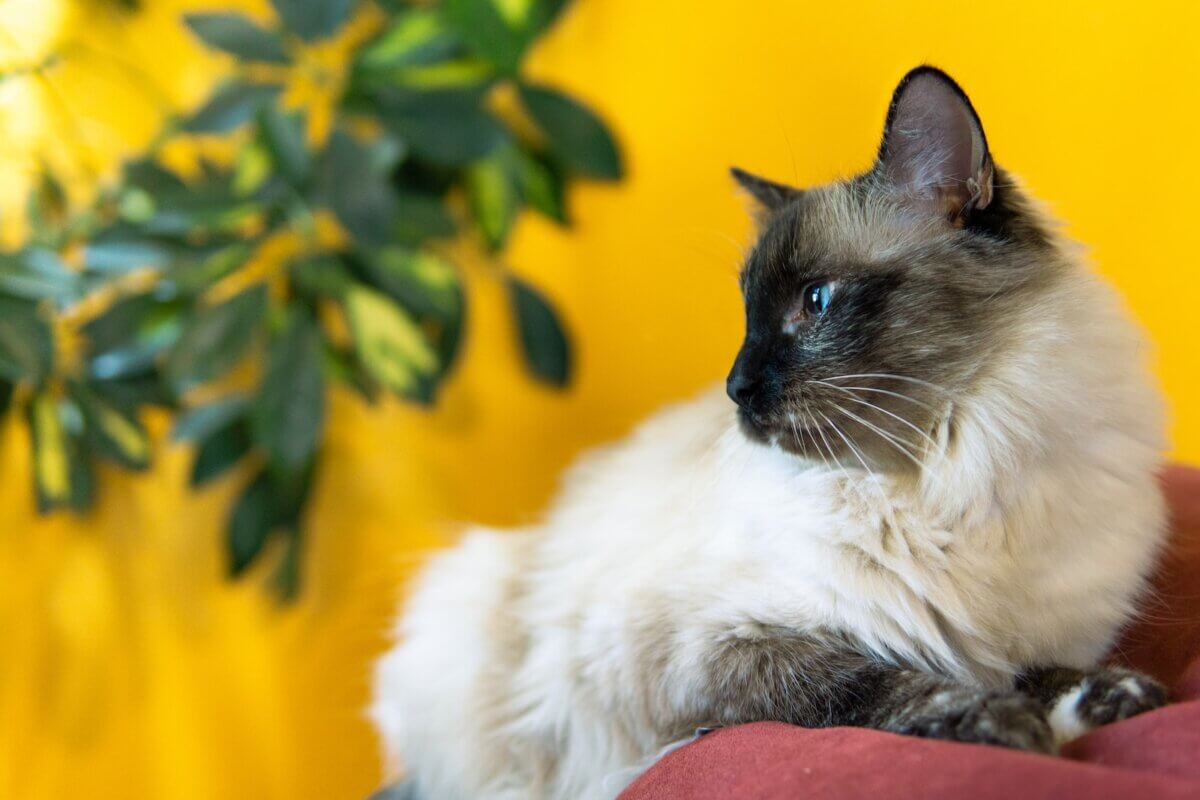
The Birman’s grooming needs are a little higher than some other cats. They need daily brushing to keep their long hair in good condition. Newsweek tells us, “Life Care Services, the retirement home provider, recommends these cats for elderly owners. It describes them as ‘affectionate, gentle and intelligent‘ creatures that ‘enjoy the companionship of their humans.'”
5. Russian Blue
The Russian Blue is a popular natural Russian breed known for its sweet temper, intelligence, and loyalty. These cats tend to be a bit more aloof than other breeds. Hepper says, “Russian Blue cats are great for senior households with low activity. Though not especially active, the Russian Blue can get along well with other cats, dogs, and children, but prefers to be close to its one human companion.”
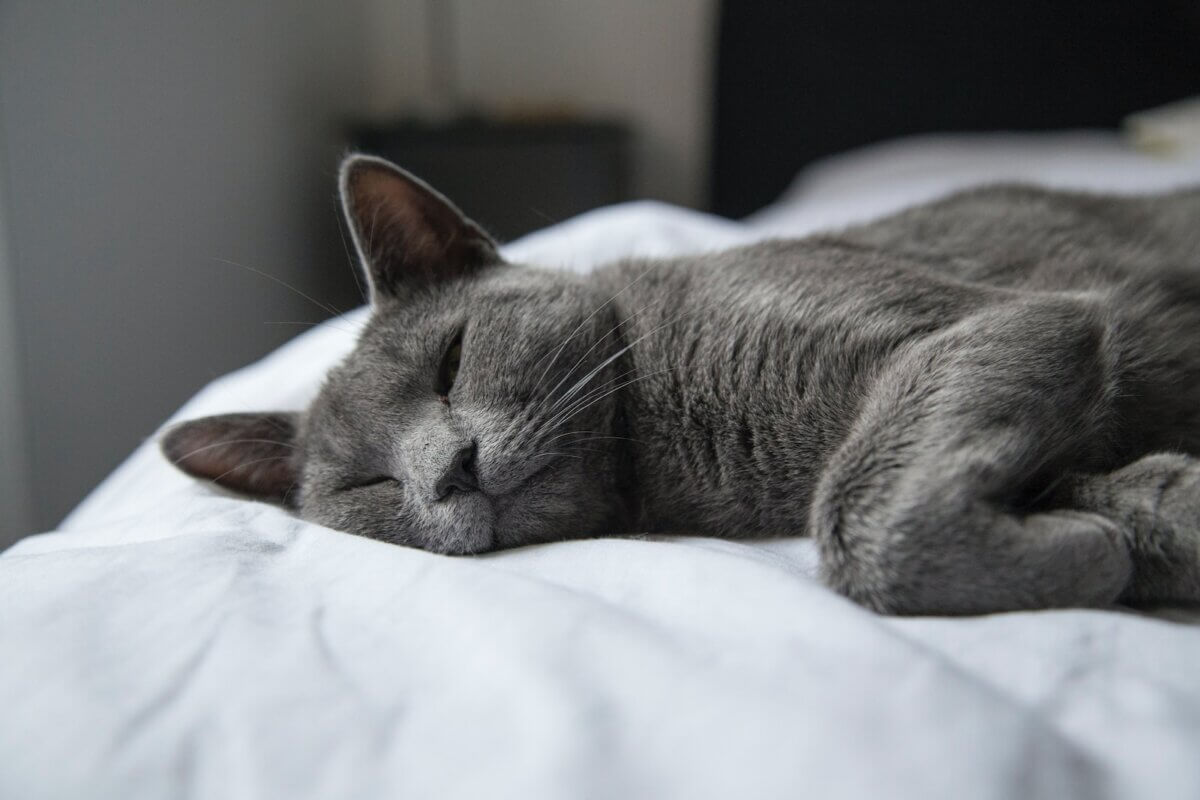
Russian Blue cats can be shy with strangers, but they form close bonds and are said to be in tune with their guardian’s emotions. “The Russian Blue breed is one of the few on this list created by nature. It gets its name from its place of origin and the typical color of its coat. The Russian Blue has bright green eyes and thick fur described as plush or soft to the touch. They’re lazy but intelligent and likes to play or perform tricks,” says Excited Cats.
Russian blue cats are quiet and shy at first, even with their owners, but they quickly warm up to them once they feel comfortable. “They’re very affectionate cats who enjoy snuggling and playing. They don’t require much grooming, but their short fur does need to be brushed a few times a week to prevent shedding,” states Sparrow Living.
You might also be interested in:
- Best Cat Breeds
- Best Cat Litter
- Best Hypoallergenic Cat Breeds
- Best Cat Foods
- Best Dog Breeds for Seniors
Sources:
- Mishi Pets
- Excited Cats
- Hepper
- Medigap
- The Good Shepherd Community
- Sparrow Living
- Newsweek
- The Scotsman
- Cat-World
- Pet Keen
Note: This article was not paid for nor sponsored. StudyFinds is not connected to nor partnered with any of the brands mentioned and receives no compensation for its recommendations.
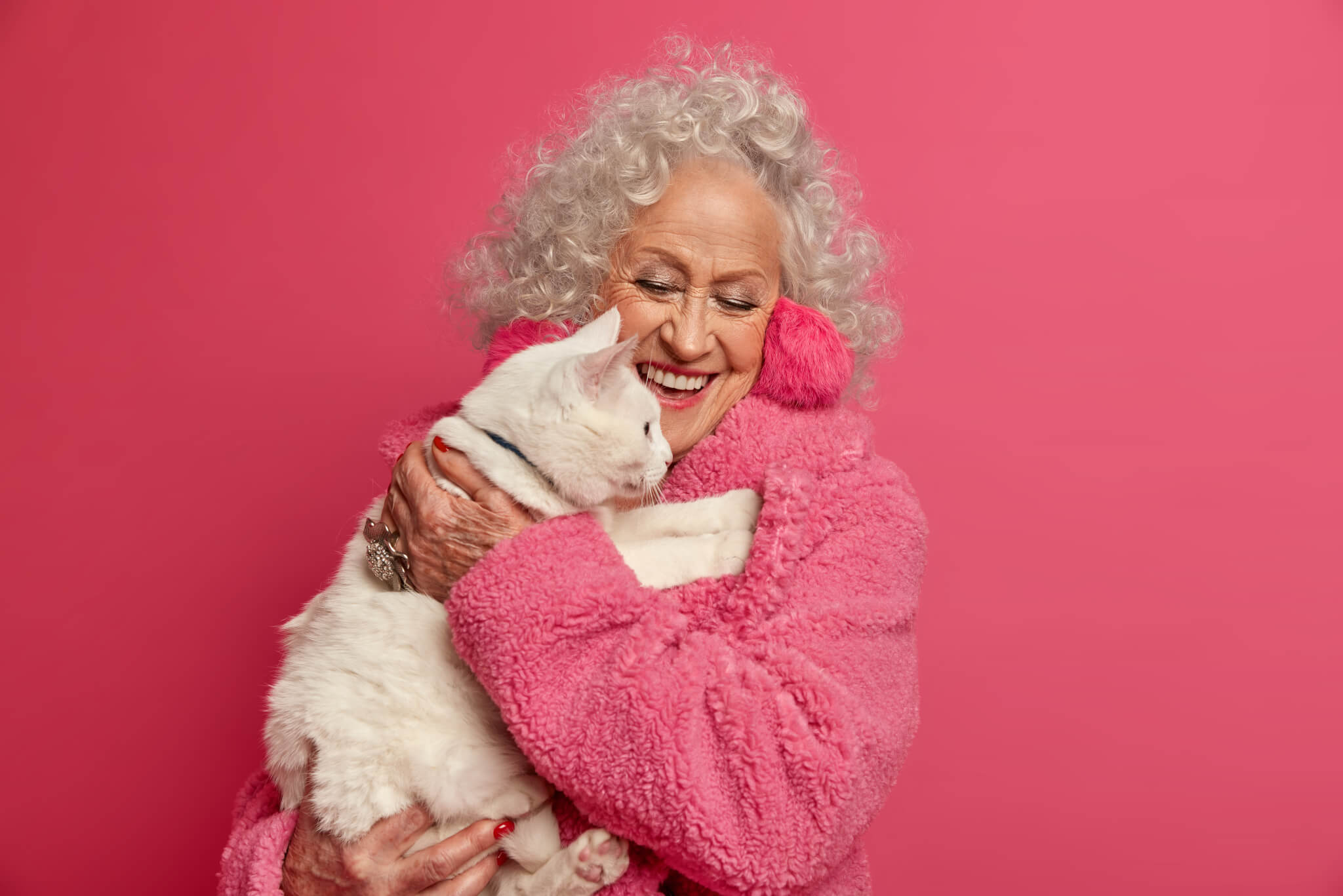
I have a Norwegian Forest Cat, and he is a big snuggly baby. Maine Coons have a good disposition too, but you can throw your back out picking them up, they get quite large.
I have the sweetest cat that is descendants of a ragamuffin type cat. She has just had kittens and two of her sisters have had kittens and every one of them are so sweet. They are 2and a half weeks old and so grown for their age. They love petting and come running when I get home or come outside from the house. They love and crave attention. They can eat powdered milk and powdered eggs mixed together in water. They can be had. They live in south Carolina.
Are your kittens still available. Do u have pictures
The best cat to own as a senior is the cat that appreciates having a good home and love.
For seniors, the best cat is a feral that has acclimated to humans. Also adopting an older (non kitten) allows the prospective adopter to see the mannerisms and habits.
Just this week my favorite cat passed, while there the veterinarian told me about a couple of hard to place cats in their facility. Both have a defect which is harmless to humans and canines. But the caveat is I must keep them inside, but have a 77′ long screened lanai so they can watch wildlife from my pond and numerous peanut bird feeders so they can still go outside the home.
My remaining older cat has growled at them for several days, now they’re all friends and family. win/win/win